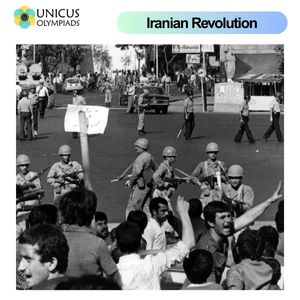

Major geopolitical events, such as the Iranian Revolution and the ongoing Israel-Palestine conflict, have far-reaching effects not only within the affected regions but across the globe. These conflicts shape international politics, security policies, economic trends, and cultural dynamics. The Iranian Revolution and the Israel-Palestine conflict are two such pivotal events in modern history, influencing global relations, particularly in the Middle East and beyond. This article explores the global effects of these events, examining their historical context, outcomes, and lasting impacts on the world stage.
The Iranian Revolution, which took place in 1979, was one of the most significant political upheavals in the Middle East. It led to the overthrow of Iran's monarchy, under Shah Mohammad Reza Pahlavi, and the establishment of the Islamic Republic of Iran under Ayatollah Ruhollah Khomeini. This revolution fundamentally changed the political, social, and cultural landscape of Iran, as well as altering the dynamics of the region and the world. Its effects can still be felt today.

The Iranian Revolution continues to shape global politics in several ways. Iran’s status as a regional power has led to frequent conflicts with neighboring countries, particularly regarding its nuclear program and involvement in regional conflicts such as those in Syria and Yemen. Additionally, Iran's support for various militant groups and its stance against U.S. and Israeli policies have made it a central figure in Middle Eastern politics and international relations.
The Israel-Palestine conflict is one of the longest-standing and most complex geopolitical conflicts in modern history. Rooted in competing nationalist, religious, and territorial claims, the conflict has had significant ramifications not only for the Middle East but for international relations, diplomacy, and security worldwide. The primary issue centers around the claim to land, with both Israelis and Palestinians asserting their right to live in the area known as historic Palestine, which includes the modern state of Israel, the West Bank, and Gaza Strip.

The Israel-Palestine conflict continues to affect global diplomacy and international relations. Despite numerous peace efforts, including the U.S.-brokered Abraham Accords (2020) between Israel and the UAE and Bahrain, the conflict remains unresolved. The humanitarian situation in Gaza and the West Bank remains dire, and the ongoing violence between Israel and Palestinian factions exacerbates regional instability.
Both the Iranian Revolution and the Israel-Palestine conflict have had profound and lasting global effects. While the Iranian Revolution was a national upheaval that transformed Iran’s political and social structures, the Israel-Palestine conflict is a long-running territorial dispute that has been a focal point of Middle Eastern and global politics for decades.
The Iran-Ukraine conflict, the Israel-Palestine conflict, and other geopolitical struggles in the Middle East continue to shape global politics, international security, and humanitarian aid. While these events have caused significant human suffering, they have also led to important changes in foreign policy, regional alliances, and global diplomacy. The effects of these conflicts will be felt for years to come, requiring sustained international cooperation, conflict resolution, and humanitarian efforts to foster peace and stability in the affected regions and beyond.